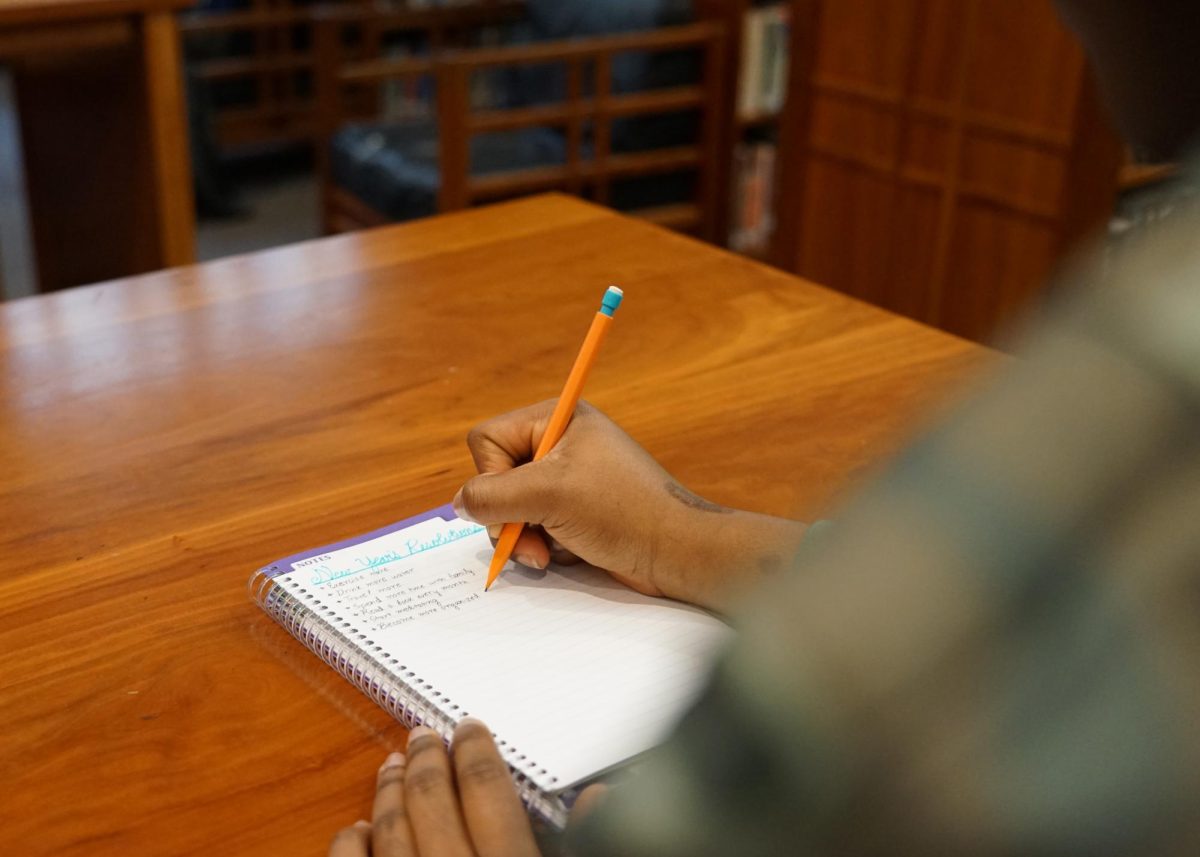New Year’s resolutions. We’ve all heard of them. We’ve all made them. But are they actually helpful? They have existed as practice for thousands of years, and people continue to make them as a way to greet the new year. Yet as they have grown in popularity, they have become less of a moment for self-reflection and more of a way to brag to others about all that one has accomplished. What was once an introspective practice has now become a superficial boast. Rather than maintaining such a futile and stressful custom, New Year’s resolutions should be adapted to reflect one’s drive for personal improvement and truly help them grow.
For one, as resolutions have shifted from a personal moment of reflection to a performative contest, they have become less and less genuine. Most people are concerned with what others think of them, wanting to fit into society’s standards and impress those around them, and the process of writing New Year’s resolutions is not exempt from such anxieties. Many people now write resolutions that are not meant to help them grow as people, but are set only to fulfill others’ expectations and demands. People are then inevitably uninterested in these goals, as they do not genuinely wish to accomplish them.
With many New Year’s resolutions, furthermore, straying away from self-improvement, they have become more unoriginal, and the same few can be heard time and time again. This lack of variety defeats the purpose of self-reflection and further deteriorates the state of this tradition. Boston Latin School science teacher Mr. Alexander Njoku notes, “[A New Year’s resolution should be] something about yourself. You look at yourself and say, ‘This is what I wanted,’ and that is the most important [part] in terms of ambition.”
New Year’s resolutions have ultimately become futile, as many people disregard them after only a few weeks. Because so many New Year’s resolutions are often hastily made, many skip over the step of self-reflection. BLS Guidance Director Ms. Megan Clougherty adds, “Oftentimes when we can’t reach our goals, it’s because we haven’t really done the work of self-reflection to figure out why we want that for ourselves and what we’re willing to do to get it.”
It is important to establish New Year’s resolutions that clearly outline goals that are important and authentic to you. As Anna Hsu (II) notes, “Setting goals does not have to be restricted to one day of the year.” Rather than making a single long-term and extravagant goal for the entire year, setting adaptable, short-term goals is much more beneficial. Hsu adds, “To remain motivated and productive in achieving one’s goals, one should accept that as you grow and change over the course of a year, your goals should too.”
These goals, additionally, should be measurable and realistic. An easy way to fail in accomplishing a goal is to select one that is too overwhelming or abstract. A goal that is overcomplicated or extensive becomes stressful, contributing only to lower self-esteem and feelings of failure. A goal that is too abstract could also become hurtful, as its vagueness makes it difficult to hold yourself accountable to complete it since there’s no step-by-step method or outline to keep you on track and motivated. Mr. Njoku advises, “Set up a resolution that is kind of looking into yourself and know your abilities and disabilities. […] That will help you to set up a good resolution that you can follow.”
It is also important to remember, when setting New Year’s resolutions, that these goals do not define you. The core goal of these resolutions is self-growth. Hsu adds, “There is a lot of guilt, envy and unhealthy habits of comparing oneself to others tied up in any comparison of progress — especially New Year’s resolutions. Those I know who make resolutions have ended up focusing on the negative, feeling ashamed of a goal they did not reach, but in reality, that goal was an infinitesimal part of their year.”
Whatever the outcome of this resolution was, you still learned something in the process. Ms. Clougherty concludes, “Most importantly, even more important than goal-setting and even more important than setting New Year’s resolutions is being curious about ourselves. So be curious about yourself, be curious instead of guilty or shameful about why you didn’t reach those goals and try to judge yourself the way you would someone else. Would you judge a friend who fell off on their New Year’s resolution? Of course, you wouldn’t. You would say they’re human.”








